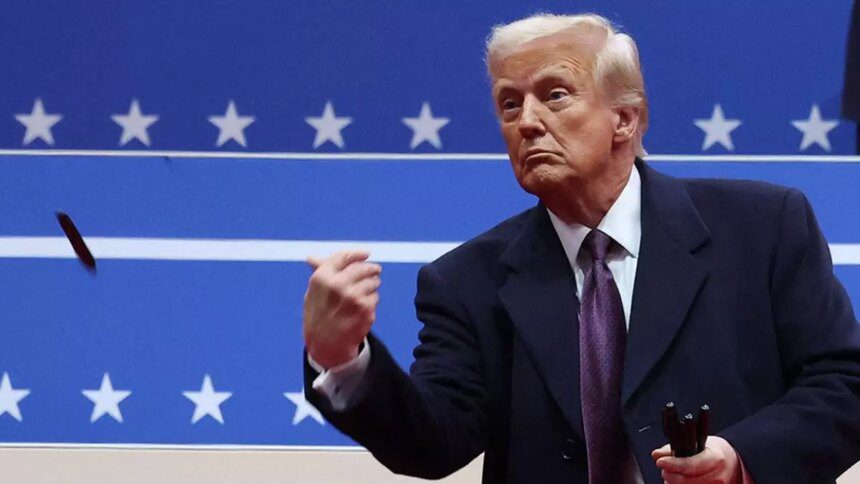Corporate law firms and institutional brokers in India are facing a surge in inquiries from their clients regarding the implications of new laws introduced under the Trump administration in the US. Discussions with clients primarily focus on various areas such as dollar borrowings, trade, immigration, tax, and regulatory matters.
There is a prevailing concern that the US President’s America-first agenda may lead to a significant influx of investments into the US, potentially putting pressure on the Indian rupee. This could result in dollar borrowings becoming more expensive for Indian firms. Additionally, uncertainties surrounding changes in citizenship laws and immigration policies are causing apprehension among clients.
Bikash Jhawar, Senior Partner at Saraf and Partners, mentions that clients are contemplating their external commercial borrowings and exploring strategies for future fundraising. The competitiveness of US borrowings compared to rupee borrowings is uncertain, and clients are seeking guidance on managing potential challenges.
Issues related to increased tariffs, export restrictions, deportation of illegal Indian migrants, and changes in citizenship laws are among the pressing concerns for clients. Kunal Sharma, Partner at Singhania & Co., notes that technology firms and immigration consultants are particularly worried about the impact of potential changes in US citizenship laws on Indian nationals.
The IT and IT-enabled services sectors in India are also bracing for potential challenges, especially in light of possible restrictions on immigration and changes to visa regulations. While Trump has expressed support for H-1B visas, concerns remain about future restrictions that could affect workforce mobility and operational costs for Indian firms operating in the US.
In response to the evolving landscape, some law firms are considering setting up specialized teams to address legal complexities arising from executive orders passed by the US President. Sindhuja Kashyap, Partner at King Stubb & Kasiva, highlights the need for customized strategies to navigate protectionist trade measures and ensure compliance.
According to Vikram Kasat, Head of Advisory at PL Capital, Indian pharmaceutical exporters could encounter tighter regulations, tariffs, and increased competition from US-based manufacturers due to the Trump administration’s protectionist trade policies. As a precautionary measure, the brokerage is advocating for a conservative investment strategy and advising clients to steer clear of high-beta stocks that carry higher volatility and risk.
Overall, Indian firms are reevaluating their fundraising tactics, seeking guidance on potential trade challenges, and bracing for regulatory changes in the aftermath of the Trump administration’s policies. The uncertainties surrounding immigration, trade, and legal issues necessitate a proactive approach from both clients and their advisors in navigating this complex landscape.










